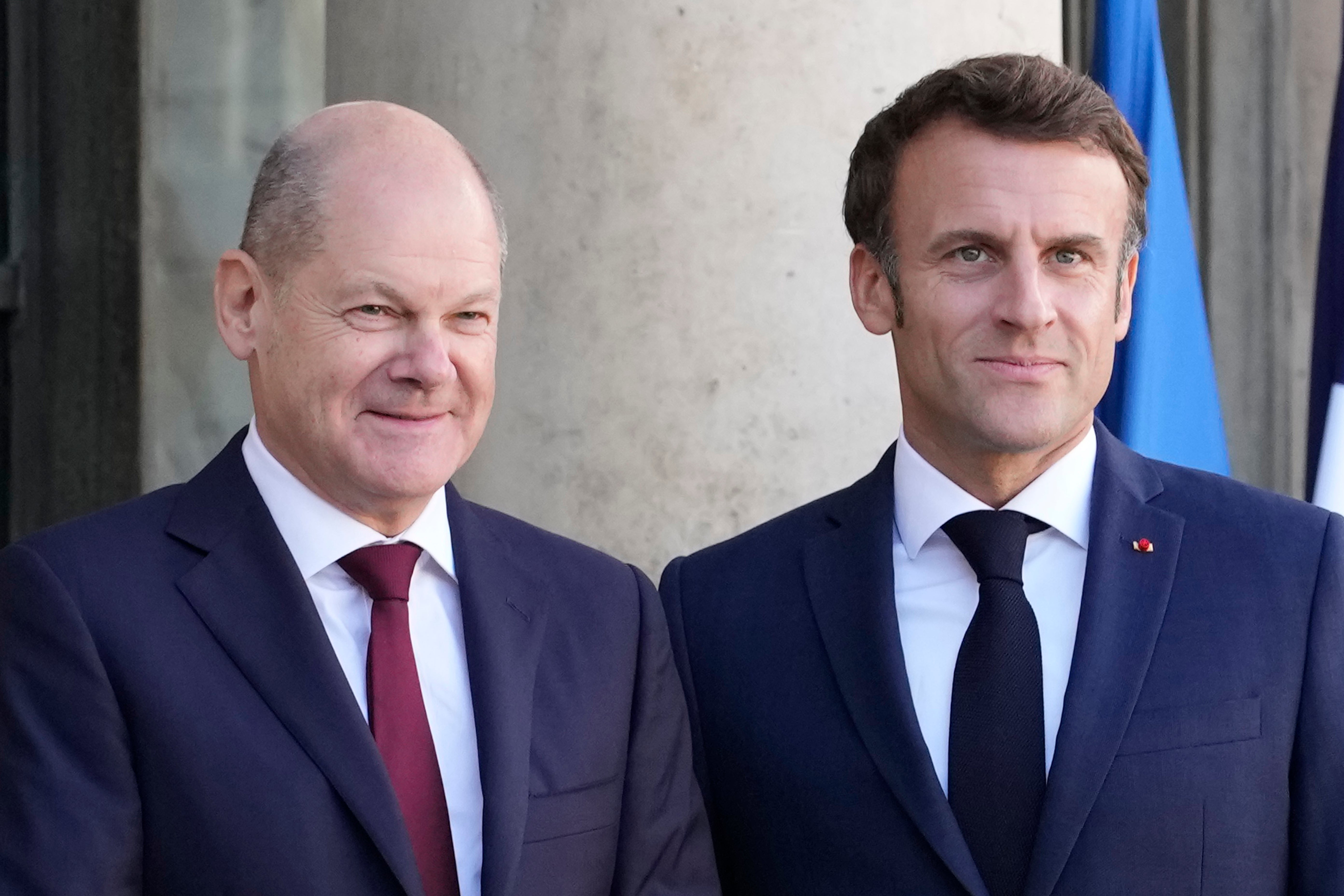France, Germany renew alliance strained amid war in Ukraine
France and Germany are seeking to overcome differences laid bare by Russia's war in Ukraine and shore up their alliance with a day of ceremonies and talks on Europe’s security, energy and other challenges

Your support helps us to tell the story
From reproductive rights to climate change to Big Tech, The Independent is on the ground when the story is developing. Whether it's investigating the financials of Elon Musk's pro-Trump PAC or producing our latest documentary, 'The A Word', which shines a light on the American women fighting for reproductive rights, we know how important it is to parse out the facts from the messaging.
At such a critical moment in US history, we need reporters on the ground. Your donation allows us to keep sending journalists to speak to both sides of the story.
The Independent is trusted by Americans across the entire political spectrum. And unlike many other quality news outlets, we choose not to lock Americans out of our reporting and analysis with paywalls. We believe quality journalism should be available to everyone, paid for by those who can afford it.
Your support makes all the difference.France and Germany are seeking to overcome differences laid bare by Russia's war in Ukraine and shore up their alliance with a day of ceremonies and talks Sunday on Europe’s security, energy and other challenges.
Germany’s entire Cabinet is in Paris for joint meetings, and 300 lawmakers from both countries are coming together at the Sorbonne University to mark 60 years since a landmark treaty sealed a bond between the longtime enemies that underpins today’s European Union.
French President Emmanuel Macron and German Chancellor Olaf Scholz will oversee two rounds of talks at the Elysee Palace, focusing first on energy and economic policy, and then on defense.
A top priority is working out Europe’s response to the subsidies for U.S. electric car makers and other businesses in the Biden administration’s Inflation Reduction Act, according to senior French and German officials.
France wants Europe to counter what it considers an unfair move by Washington. Paris is pushing for the EU to relax rules on state subsidies in order to accelerate their allocation, simplify the bloc's support for investments and create an EU sovereign fund to boost green industries. Berlin, however, warns against protectionism.
On defense, the neighbors are expected to discuss military aid to Ukraine, according to French and German officials who weren't authorized to be publicly named according to their governments’ policies.
Both countries have contributed significant weaponry, but Ukraine is asking for tanks and more powerful arms as Russia’s war drags on.
The war has exposed differences in strategy between the two countries, notably in European talks on how to deal with the resulting energy crisis and punishing inflation, as well as over future military investment.
Sunday’s gathering is the first such in-person joint government meeting since 2019. It was originally scheduled for October, but was repeatedly delayed.
The officials are marking the 60th anniversary of the Elysee Treaty signed by French President and wartime anti-Nazi resistance leader Charles de Gaulle and West German Chancellor Konrad Adenauer on Jan. 22, 1963.
___
Jordans reported from Berlin. Angela Charlton contributed to this report from Paris.